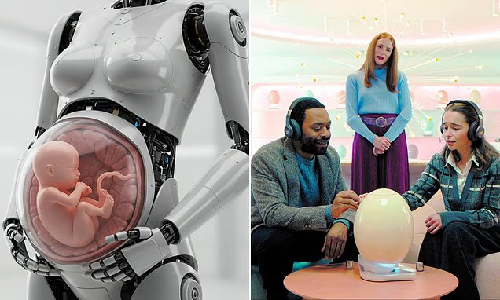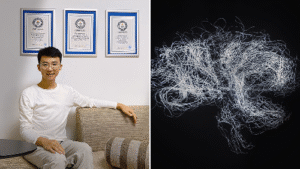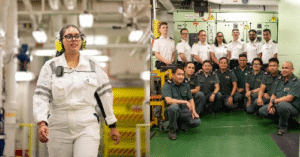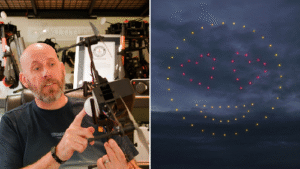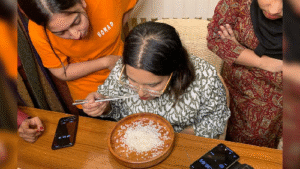A bold announcement from a Chinese technology company at the 2025 World Robot Conference has ignited a global debate on the future of human reproduction. Dr. Zhang Qifeng, the founder of Guangzhou-based Kaiwa Technology, has unveiled plans to create the world’s first “gestation robot,” a humanoid machine that will house an artificial womb capable of carrying a human fetus to full term.
The concept has been misreported in some outlets as a “robot that can get pregnant and give birth,” but the reality, while still on the frontier of science, is more specific. The project involves integrating a highly advanced artificial womb into the abdomen of a humanoid robot. This womb is designed to mimic a natural human uterus, complete with synthetic amniotic fluid and a system to deliver nutrients and oxygen. According to Dr. Zhang, the purpose is to provide an alternative to traditional surrogacy, which is often expensive and fraught with legal and emotional complexities.
A working prototype of the gestation robot is slated to be unveiled in 2026, with an estimated price tag of approximately $13,900 USD (around ₹12 lakh). This cost is a fraction of the expense of commercial surrogacy in many parts of the world, making the technology a potential solution for millions of couples struggling with infertility.
While the scientific community acknowledges the breakthrough in artificial womb technology—building on past research that successfully kept premature lambs alive in “biobags”—the project has raised a storm of ethical questions. Critics and bioethicists are debating the implications of separating gestation from a human body, questioning the potential for emotional and psychological effects on children born from a machine, and raising concerns about the commodification of childbirth. Recognizing these profound issues, Dr. Zhang confirmed that his team is already in discussions with Guangdong provincial authorities to establish a legal and ethical framework for the technology’s eventual use.
